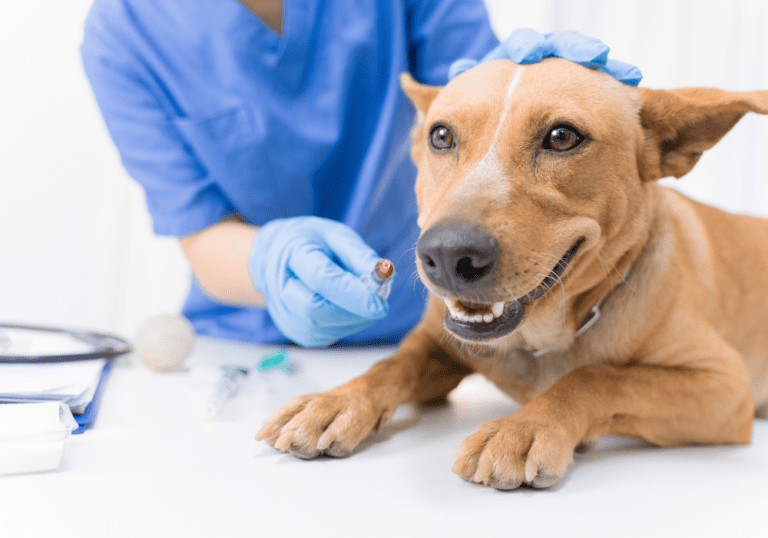Medication Tips for Your Pet: A Guide for Pet Owners

Administering medication to your pet can often feel like a daunting task. Whether you’re trying to slip a pill between your pet’s clenched teeth or ensure they take their liquid medicine, the process can be frustrating for both you and your furry friend. However, with the right techniques and strategies, giving your pet their medication can become a much smoother experience. Here are some effective medication tips for your pet that will help make the process easier and less stressful.
Step-by-Step Procedure for Administering Pills
When your veterinarian prescribes pills for your pet, following a systematic approach can make all the difference. Here’s a step-by-step guide:
- Position the Pill: Hold the pill between your index finger and thumb.
- Tilt the Head: Gently tilt your pet’s head back to help them swallow the pill more easily.
- Open the Mouth: Use your middle and ring fingers to lift the upper jaw.
- Drop the Pill: Place the pill in the center of your pet’s tongue and close their jaw.
- Encourage Swallowing: Gently rub your pet’s throat to encourage them to swallow the pill.
If you find it particularly challenging to administer the pill manually, consider using a pill applicator. This handy device can place the pill further back in your pet’s mouth for easier swallowing.
Administering Liquid Medication
When giving liquid medication, avoid tilting your pet’s head back, as this can lead to choking. To administer liquid medicine:
- Open the Jaw: Carefully open your pet’s jaw.
- Squirt the Medicine: Administer the medication into the side of your pet’s mouth, allowing them to swallow at their own pace.
If you’re alone and need assistance, you can wrap your pet in a towel or blanket to prevent squirming and minimize the risk of injury.
Get Creative with Medication Administration
Sometimes, the standard methods may not be effective, especially with large or difficult pets. In such cases, hiding pills or liquid medication in food or treats can be a practical solution. However, **never crush pills** unless you have consulted our doctors at Willow Glen Pet Hospital, as some medications lose their effectiveness when crushed.
Choose treats that are large enough to hide the medication and appealing enough to entice your pet. Some popular options include:
- Pill pockets specifically designed for this purpose
- Tuna or canned meat
- Peanut butter or cream cheese
- Baby food or wet pet food
Flavor Matters
Many medications can be flavored with beef, chicken, or fish to make them more palatable for your pets. If your pet’s medication comes in one of these flavors, remember to store it safely to avoid accidental overdoses.
Important Guidelines: Don’t Share Medications
It’s crucial to understand that dosage amounts vary significantly between different types and sizes of pets. A medication that is effective for a large dog can be harmful or even fatal for a smaller animal.
Furthermore, while it might be tempting to share your medications with your pets, many human medications can be toxic to animals. For example, over-the-counter drugs such as Aleve, Motrin, and Advil can cause serious health issues in pets, including kidney failure and stomach ulcers. Always **consult our doctors at Willow Glen Pet Hospital** before giving any human medication to your pet.
Key Takeaways When Giving Pet Medication
To ensure your pet receives their medication safely and effectively, keep these tips in mind:
- Follow Instructions Carefully: Pay attention to whether medications should be taken with or without food. Not adhering to these guidelines may reduce the medication’s effectiveness.
- Complete the Prescription: Even if your pet starts to feel better after a few days, it’s essential to finish the entire prescription to prevent a relapse of symptoms.
- Monitor for Side Effects: Just like humans, pets can experience side effects. Discuss potential side effects with our doctors at Willow Glen Pet Hospital, including which ones require immediate attention.
Conclusion
Administering medication to your pet doesn’t have to be a stressful experience. By following these tips and guidelines, you can ensure that your beloved furry companion receives the care they need. If you have any questions or concerns about your pet’s medication, don’t hesitate to reach out to us at Willow Glen Pet Hospital.
If you need more help or have any questions, call us at Willow Glen Pet Hospital, (669) 342-7472.
1033 Willow Street, San Jose, CA, 95125, US
Hours: Monday – Saturday 8:00 am – 6:00 pm
Dr. Gillon or Dr. Shani or visit us online.
